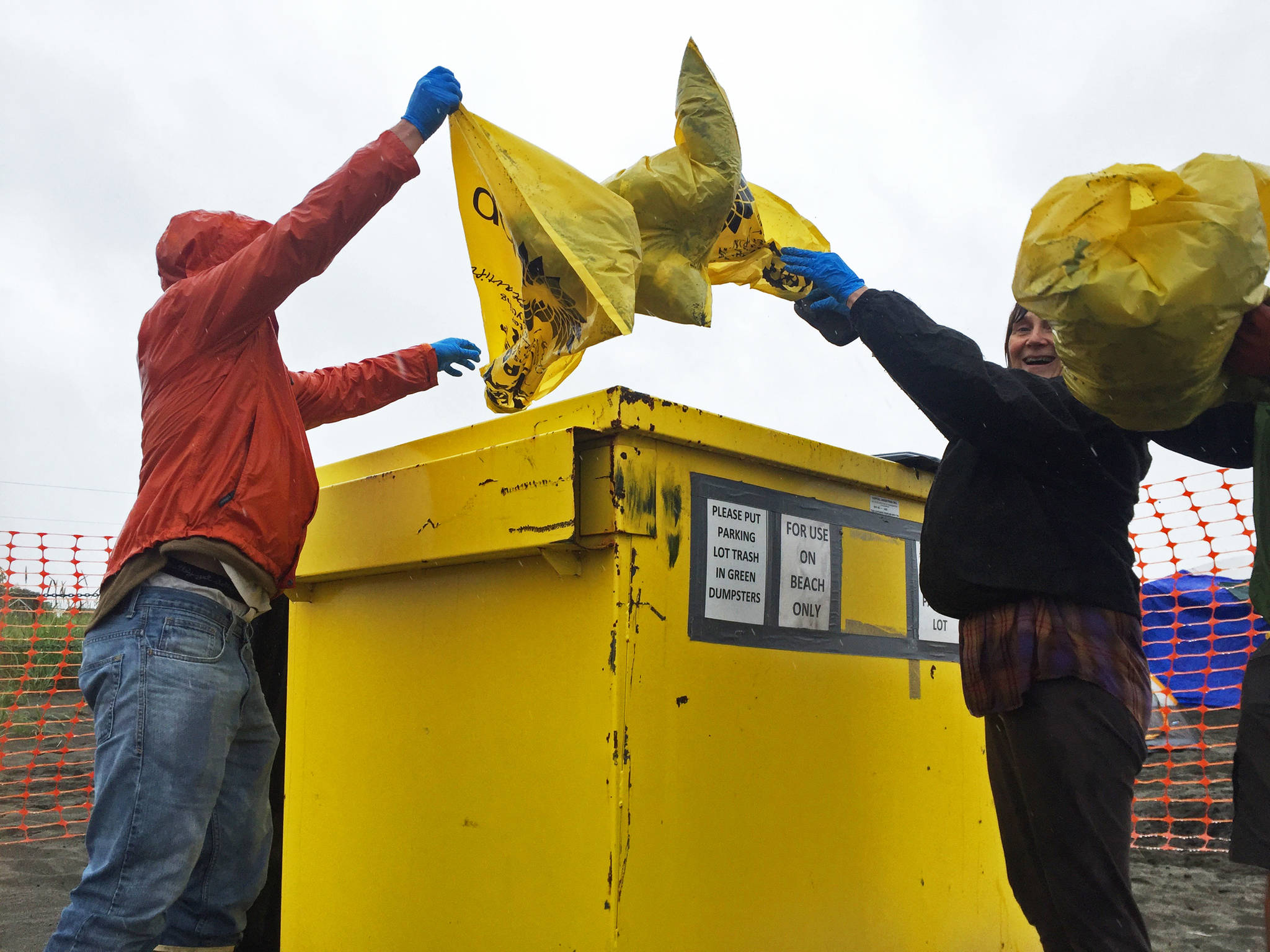One of the sorest points for Kenai residents about the personal-use dipnet fishery is the trash left on the beaches — cigarette butts, plastic cups, duct tape and wet wipes, not to mention the fish waste.
But the Kenai Central High School Cross Country Ski Team took a crack at cleaning up some of it Tuesday during an annual beach walk. Parents, coaches and students patrolled the rainy beach with bright yellow garbage bags, targeting all the garbage they could spot other than fish waste and clothes hung out to dry.
“It’s better than it was five or six years ago,” said coach Chris Bergholtz as she picked her way through the boulders and driftwood near the bluff.
Further down the beach, high school senior Karl Danielson and his mom Teresa Danielson scanned the beach as dipnetters transited up and down, carrying nets, fish or gear. They were seeing a lot of duct tape and zip ties, Teresa said.
“And a lot of these,” Karl added, holding up a damp cigarette butt before dropping it into his bag. Teresa nodded in agreement.
The city of Kenai has begun providing more infrastructure to support the fishery in recent years, providing waste removal and restrooms and raking the fish waste off the beach back into the water every night. The citizens doing the cleanups on foot used to try to pick up the fish waste, which rots in the sun and attracts legions of gulls, but now leave it to the city.
The city pays the ski team a small fee to do the cleanup, which helps support the team’s activities in the winter, Bergholtz said. Five or six students came out to pick up trash Tuesday, she said
Mostly, it’s a community service effort, said Brad Nyquist, another of the coaches. As he walks the beach, he said he talks to dipnetters to find out where they’re from and make conversation. The conditions have improved as the city has put up permanent fencing to protect the dunes and people have gotten more acquainted with the fishery — for instance, Nyquist said he sees less buried trash than he used to,
“I think it helps just seeing people out here cleaning up,” he said. “People become more aware of it.”
It isn’t the only cleanup the team does, nor is the ski team the only group that cleans the beach. The ski team picks up trash two times a week while the fishery is open. It’s a bit like mowing the lawn, Nyquist joked — it’s better to do it as they go rather than try to pick it all up at once at the end of the season, because it gets buried deeper in the sand with wind and foot traffic.
The dipnet fishery began July 10 and will run through July 31 at the mouth of the Kenai River. The Kasilof River dipnet fishery will remain open until Aug. 7. Volunteers in the local community and through conservation nonprofit the Kenai Watershed Forum clean the trash from the Kasilof River beaches as well before and after that fishery.
Reach Elizabeth Earl at elizabeth.earl@peninsulaclarion.com.

